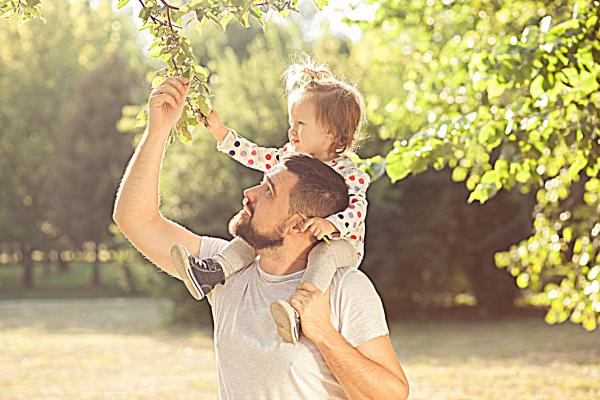
Memory is a fickle thing. Each one of us has memories we remember the most. There are memories we treasure and some we abhor. Even the most awkward or embarrassing memories resurface at the most random of times. But while our minds are a database full of memories, there is one small server dedicated to our earliest childhood memories.
The older we get, the harder it is to access this server. Psychologists have termed adults inability to access childhood memories as "childhood amnesia." Very few people can remember anything before the age of 3. Researchers at Emory University discovered that we begin to develop "childhood amnesia" around the age of 7.
As adults, it's easy to accept that we don't remember much from when we were children.
But don't be so quick to disregard your toddler's memory. In fact, your toddler can remember much more than you think.
Toddlers remember things much like adults do
It's been said that children have a more "live in the present" attitude and don't retain much of a memory. Year after year studies have been done that prove that sentiment to be totally wrong. In these studies, almost all researchers concluded toddlers are able to retain memories several months and perhaps years after an event occurred. Because they are so small, their brains are still developing but such studies have proven that they are capable of having a strong memory.
Of course, as children age, their memory strengthens and they are able to retain more information. Researchers have found that children just under two are able to remember things that happened to them a year ago or basically something that occurred half their a lifetime ago.
Toddlers' memories are a mess of unorganized information
But they do still remember. Because your toddler's brain is still developing, they don't have the ability to organize information like teens and adults do. Their brains are basically a mess of jumbled information and as they grow and learn they begin to organize that information into proper compartments. They can sort the information they have, but don't have the ability to organize it just yet.
Due to a lack of organization, children are more likely to forget things that happen in their younger years and are unable to recall that information down the road. Studies have shown that the older you get, the less you are able to remember from your younger years. This is, of course, due in part to having more advanced skills in language and learning. Now that the child is older they no longer see the world through the bars of the crib and can't relate to the world they experienced as toddlers.
However, some memories from our younger years still stick around. If we forget more of our childhood as we age, then how can we still hold onto those few memories?
How much toddlers remember into adulthood depends upon the parents
Much of a child's memory depends upon how parents talk with their toddlers. Researchers at Emory University describe this form of talking with toddlers as "highly elaborative." If you talk to your children elaborately, essentially through telling stories, your toddler will be able to remember more into their adolescence.
Talking conversationally with your child, probing them for information and offering it when they can't remember allows them to dig deeper into their memory. Digging deep will allow things once forgotten to be remembered again.
In order for your child to have a strong memory, parents must be able to tell them stories. Rather than asking them if they remember about the one time they went to get ice cream, elaborate more. Tell it like a story, and don't forget to include the child in the telling of the story.
Open the story about how it was a hot day and you wanted to cool down. You got in the car with your child and went to the local ice cream shop and let them choose what flavor they wanted. Ask your child, "Do you remember what flavor you wanted?" and if they can't remember you can tell them. As the story goes along and you talk about how you chose a place to sit, little things begin to resurface in the child's mind and they might even remember things about that day you don't.
Not everything a toddler remembers is made up - they can just remember more
Toddlers like to tell stories just as much as you do. Encourage them to tell stories because a lot of the stories they tell are founded on real-life experiences they've had. Memories tend to warp as we age and not all are completely true as we once thought. The same can be said for a toddler.
Because their minds are so unorganized but full of information, the things they remember may seem random, but it's up to you as a parent to probe them. Ask them questions, allow your toddler to start telling a story. The very act of telling stories allows the child to retain information better and carry that information with them as they age.
The more stories we tell and the more active conversation we have with our children has a greater effect on them than we may realize. Such simple acts of telling stories can have a lasting effect on a toddler, allowing them to remember things well into adulthood.

